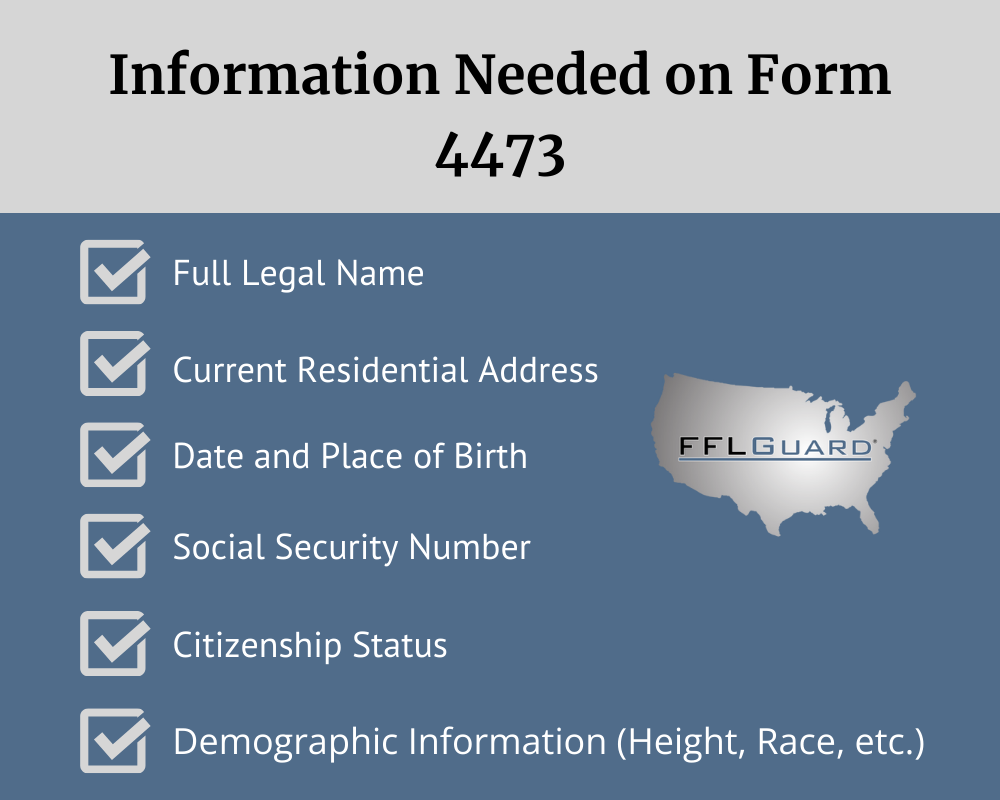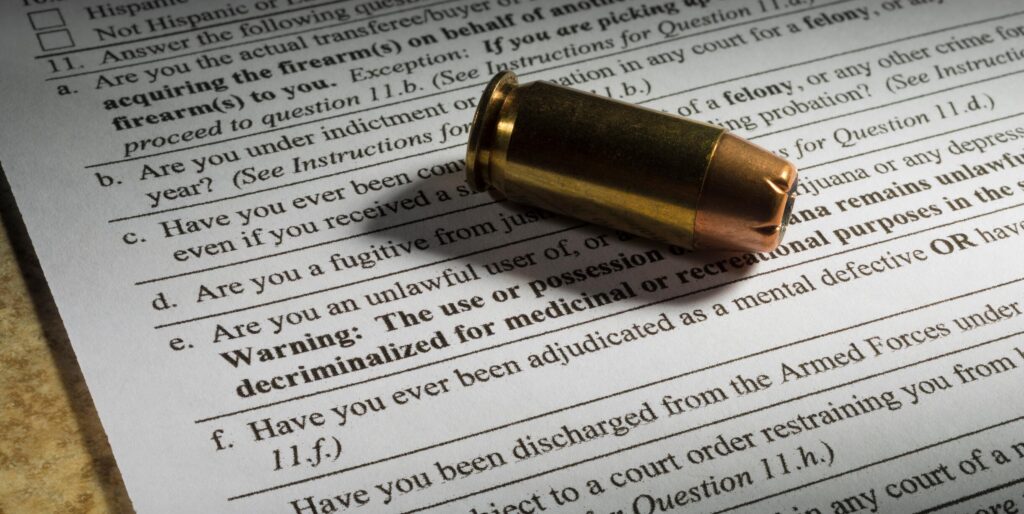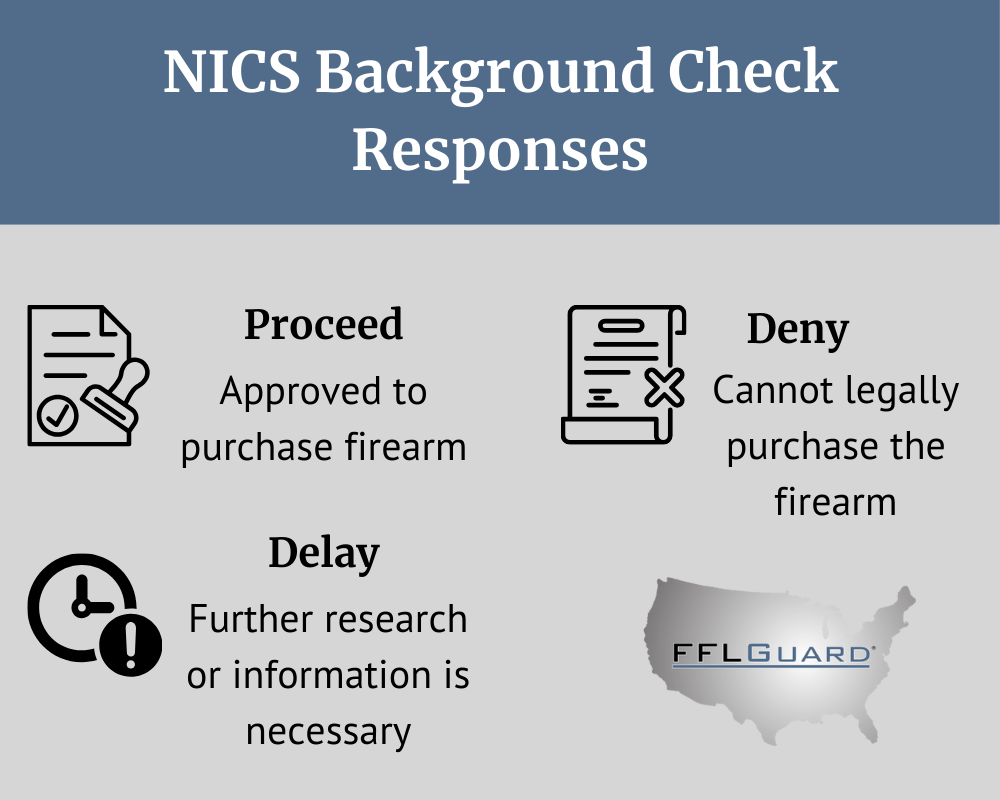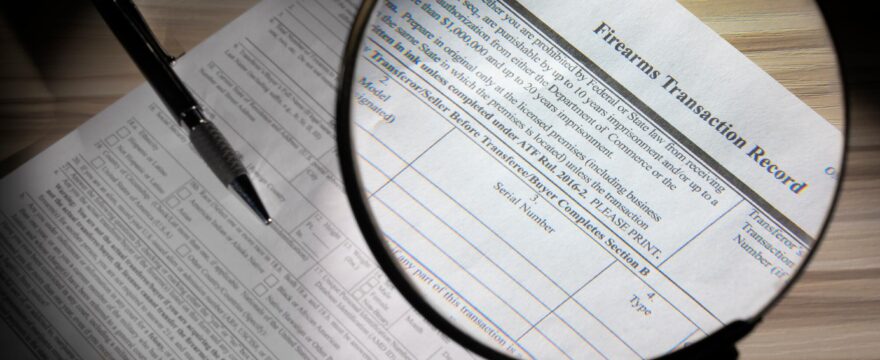Purchasing a firearm can be exciting yet intimidating, especially if it’s your first time going through the process. Beyond selecting the right firearm for your needs, there’s an important legal requirement that many first-time buyers find confusing: ATF Form 4473. Understanding the form’s essentials can help ensure your purchasing process goes smoothly and remains fully compliant with federal law.
What is ATF Form 4473?
Form 4473, officially known as the Firearms Transaction Record, is a document required by the Bureau of Alcohol, Tobacco, Firearms and Explosives (ATF) for all firearms purchases from licensed dealers. This form serves as the official record of the transaction and initiates the background check process that determines your eligibility to purchase a firearm.
The form plays a critical role in the firearms purchasing system by:
- Documenting the transfer of firearms from dealers to buyers
- Providing information necessary for the National Instant Criminal Background Check System (NICS)
- Creating a paper trail that helps law enforcement trace firearms if necessary
- Ensuring that buyers meet all legal requirements for firearm ownership
Frequently Asked Questions for First-Time Users
General Questions About Form 4473
What is Form 4473 and why do I need to fill it out?
Form 4473 is a document issued by the federal government that records your firearm purchase and initiates your background check. Federal law requires it for all firearms purchases from a Federal Firearm Licensee. The form helps protect against straw purchases by verifying that you’re legally eligible to purchase and possess a firearm under federal law.
Who is required to fill out Form 4473?
Anyone purchasing a firearm from a licensed firearm dealer must complete Form 4473. This requirement applies regardless of whether you’re buying a handgun, rifle, or shotgun. The only exceptions to this requirement involve certain transfers between immediate family members in some states, but these typically don’t involve transactions with licensed dealers.
What documents do I need to provide along with the form?
You’ll need to provide valid, government-issued photo identification that includes your name, address, and date of birth. A driver’s license or state ID card is most commonly used. If your current address differs from the one on your ID, you may need to provide additional documentation showing your current residence, such as a utility bill or government correspondence.

Specific Sections and Information Required
What personal information will I be required to disclose?
Form 4473 requires:
- Full legal name
- Current residential address
- Place of birth and date of birth
- Height, weight, and gender
- Ethnicity and race (optional for statistical purposes)
- Social Security Number (optional but recommended to prevent delays)
- Citizenship status
Accuracy is crucial when providing this information. Even minor discrepancies between your form and identification can cause delays or denials.
How is my information used and who can access it?
The information you provide is primarily used to conduct your background check through the FBI NICS. The completed Form 4473 is retained by the dealer for at least 20 years and can be accessed by ATF agents for compliance inspections or criminal investigations. The form isn’t sent to a government database for routine purchases, though the dealer must report multiple handgun purchases.
What does the “Criminal History” section entail?
This section asks a series of “yes or no” questions about factors that might prohibit you from purchasing a firearm. A prohibited person can include someone with:
- Felony convictions
- Domestic violence convictions
- Mental health adjudications
- Dishonorable discharges from the military
- Illegal controlled substance use
- Restraining orders
Providing a false statement is a federal offense that can result in up to 10 years in prison, so answer each question fully and honestly.

Can I complete Form 4473 online, or must it be paper?
While the ATF allows for electronic Form 4473 systems, you must still physically visit the dealer and sign the form in person. Many dealers use computerized systems to help ensure accuracy, but the process still requires your physical presence, verification of identity, and signature. The form must be completed at the dealer’s premises.
FastBound is a firearms compliance software backed by FFLGuard that streamlines A&D bound books and 4473 forms for seamless federal and state compliance.
Legal Implications and Your Rights
What are the legal consequences of filling out Form 4473 incorrectly?
Knowingly providing false information on Form 4473 can result in substantial fees or even criminal charges. Honest mistakes can usually be corrected, but they must be handled quickly. If you realize you’ve made an unintentional error, immediately notify the gun dealer so they can help you correct it properly.
Can I refuse to answer any of the questions on Form 4473?
All questions on Form 4473 (except for certain demographic information marked as optional) must be answered for the transaction to proceed. Refusing to answer mandatory questions will result in the FFL holder being unable to transfer the firearm to you. The form represents a legal requirement, not an optional process.
What do I do if my answer is questioned by the FBI or dealer?
If your background check results in a “delay” status or if the dealer questions one of your answers, remain calm and cooperative. Provide any clarification or additional information requested. In some cases, you may need to provide court documents or other records to resolve questions about your background. For complex situations, consulting with an attorney who specializes in firearms law may be helpful.
Common Concerns for First-Time Gun Buyers
How do I know if I am eligible to purchase a firearm?
Generally, you are eligible to purchase a firearm if you:
- Are 21 or older for handguns (18 for rifles and shotguns)
- Are a U.S. citizen or legal resident
- Have not been convicted of a felony or domestic violence
- Are not subject to restraining orders
- Have not been adjudicated as mentally defective
- Are not an unlawful user of controlled substances
If you’re uncertain about a specific aspect of your background, consulting with an attorney before attempting to purchase can prevent complications.
What should I do if there’s a mistake on my form after I’ve submitted it?
If you discover an error after submission but before the transfer is completed, immediately notify the dealer. They can have you complete a new form or make corrections to the existing one following proper ATF procedures. If the transfer has already occurred, contact the dealer for guidance on properly documenting the correction.
Is my medical or mental health information requested on Form 4473?
The form does not request your complete medical history. However, it does ask whether you have ever been “adjudicated as a mental defective” or “committed to a mental institution.” These are specific legal terms referring to formal court or lawful authority determinations, not simply seeking mental health treatment. Voluntary counseling or therapy does not typically trigger these prohibitions.

What happens after I submit the form?
After you complete Form 4473, the dealer will contact NICS to initiate your background check. This check can result in:
- Proceed: You’re approved to purchase the firearm
- Delay: Further research is needed (can take up to 3 business days)
- Deny: You cannot legally purchase the firearm
Most checks are completed in minutes, but delays are not uncommon, especially for first-time buyers or those with common names.
Additional Tips & Best Practices
Before Filling Out the Form:
- Review a sample Form 4473 online to familiarize yourself with the questions
- Gather all necessary identification and supporting documents
- Be prepared to answer questions about your background honestly
- Consider any potential issues in your background that might need clarification
During the Process:
- Take your time reading each question carefully
- Ask the dealer for clarification if any question seems confusing
- Answer truthfully – attempting to deceive the system is both illegal and ineffective
- Double-check all information before signing
After Completion:
- Consider keeping a copy of the receipt for your records
- Store your firearm safely and securely when you return home
- Familiarize yourself with local laws regarding transportation and storage
- Consider taking a safety course if you haven’t already done so
Reach Out to our Firearms Legal Experts at FFLGuard
Understanding Form 4473 is an essential part of responsible firearm ownership. By familiarizing yourself with the form and process before your purchase, you’ll ensure a smoother transaction and demonstrate your commitment to following firearms laws.
Remember that the form serves an important purpose in maintaining the integrity of firearms sales and helping ensure that guns don’t fall into the hands of straw purchasers or prohibited persons The most common issues first-time buyers face with Form 4473 involve address discrepancies and misunderstanding the criminal history questions. Approaching this process with patience and honesty reflects the responsibility that comes with firearm ownership.
FFLGuard is directed by The Chiafullo Group, LLC and has been providing legal and educational services for FFLs around the country since 2008. Our subject matter experts can help FFLs and prospective FFLs understand every aspect of federal and state regulations and how they can remain in compliance. If you have specific questions about Form 4473 or need assistance with FFL legal matters, contact FFLGuard for professional guidance tailored to your situation.

